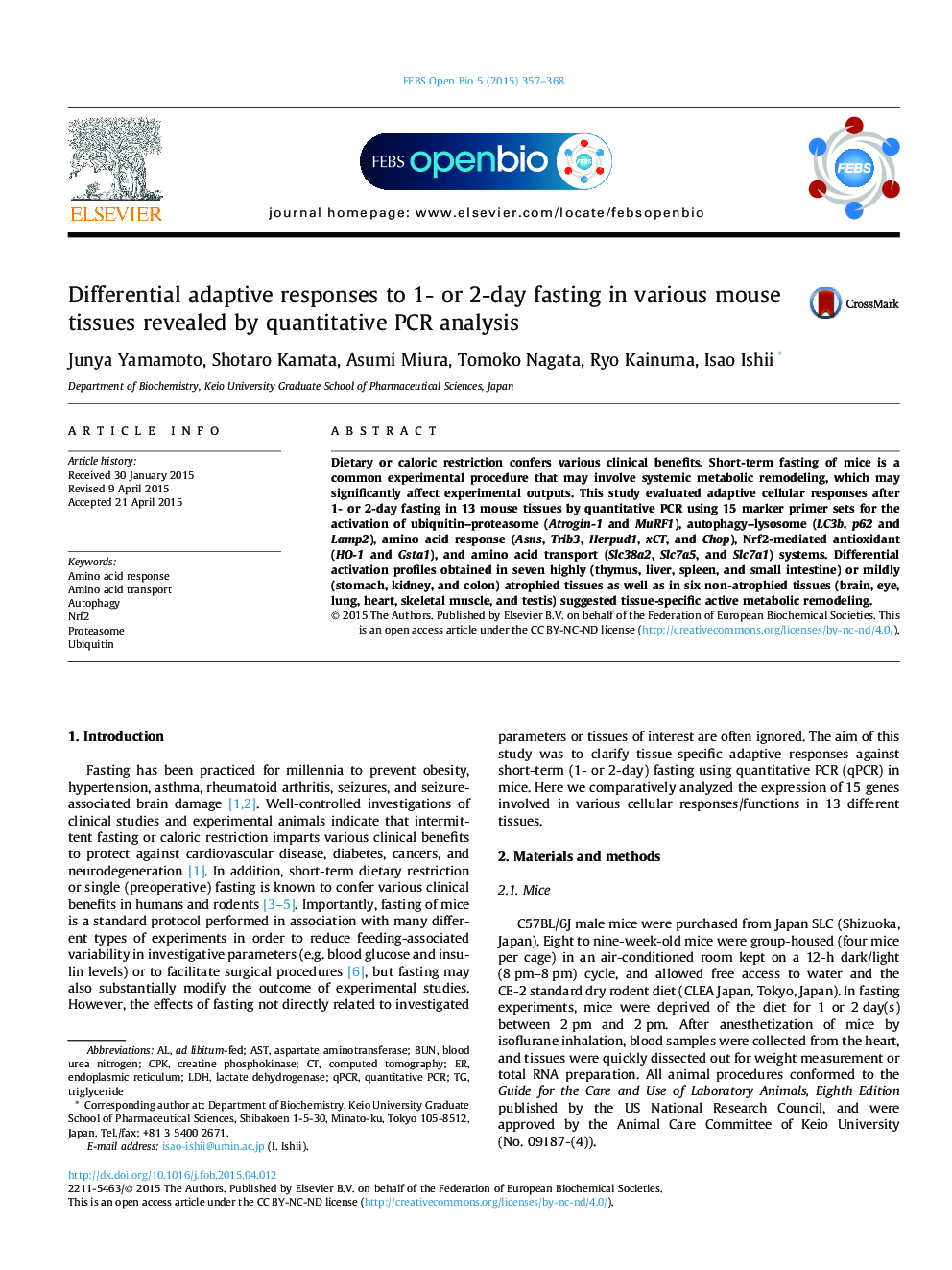| کد مقاله | کد نشریه | سال انتشار | مقاله انگلیسی | نسخه تمام متن |
|---|---|---|---|---|
| 1981595 | 1539419 | 2015 | 12 صفحه PDF | دانلود رایگان |

• Adaptive cellular responses to 1- or 2-day fasting differ among tissues.
• Ubiquitin–proteasome and autophagy–lysosome pathways are activated in thymus/lung/heart/muscle.
• The amino acid response is activated mainly in thymus.
• An Nrf2-mediated antioxidant system is activated in thymus, heart, and kidney.
• Expression of amino acid transporter genes is activated in a tissue-specific manner.
Dietary or caloric restriction confers various clinical benefits. Short-term fasting of mice is a common experimental procedure that may involve systemic metabolic remodeling, which may significantly affect experimental outputs. This study evaluated adaptive cellular responses after 1- or 2-day fasting in 13 mouse tissues by quantitative PCR using 15 marker primer sets for the activation of ubiquitin–proteasome (Atrogin-1 and MuRF1), autophagy–lysosome (LC3b, p62 and Lamp2), amino acid response (Asns, Trib3, Herpud1, xCT, and Chop), Nrf2-mediated antioxidant (HO-1 and Gsta1), and amino acid transport (Slc38a2, Slc7a5, and Slc7a1) systems. Differential activation profiles obtained in seven highly (thymus, liver, spleen, and small intestine) or mildly (stomach, kidney, and colon) atrophied tissues as well as in six non-atrophied tissues (brain, eye, lung, heart, skeletal muscle, and testis) suggested tissue-specific active metabolic remodeling.
Journal: FEBS Open Bio - Volume 5, 2015, Pages 357–368